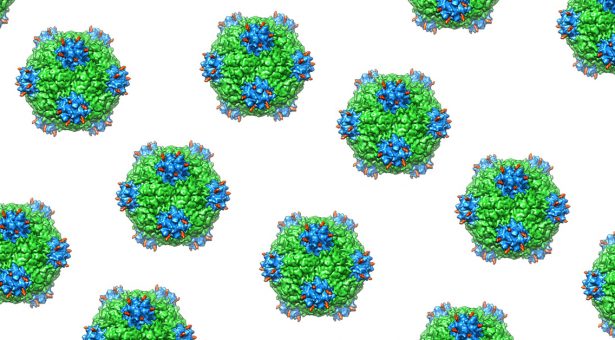
Researchers have taken positive steps towards using plant virus-based particles for the treatment of human autoimmune diseases such as type 1 diabetes and rheumatoid arthritis.
Viruses are natural, self-assembling nano-scale structures that have been exploited in the fields of electronics, agriculture and medicine.
The genetically encoded coat proteins of virus nanoparticles (VNPs) can be reprogrammed to incorporate new sequences for specific functions. Plant viruses have the advantage in that they are unable to replicate in mammals making them safer for medical applications.
In this study led by the University of Verona, Italy, researchers explored whether VNPs engineered to display a specific protein sequence could help to prevent or treat type 1 diabetes and rheumatoid arthritis.
They used cowpea mosaic virus (CPMV) constructs developed in the Lomonossoff lab at the John Innes Centre. These VNPs displayed peptides associated with type 1 diabetes in order to modulate immune system response. The researchers also used other VNPs, engineering tomato bushy stunt virus with peptides associated with rheumatoid arthritis.
Using animal models to analyse immune system responses, they reveal that the re-engineered nanoparticles offered therapeutic benefits in both cases: protection against type 1 diabetes and improved symptoms of rheumatoid arthritis.
More pre-clinical and clinical trials will follow up this work. If successful it could pave the way for the development of plant viruses for the clinical treatment of human autoimmune diseases.
The research: 'Prevention and treatment of autoimmune diseases with plant virus nanoparticles' appears in Science Advances.






